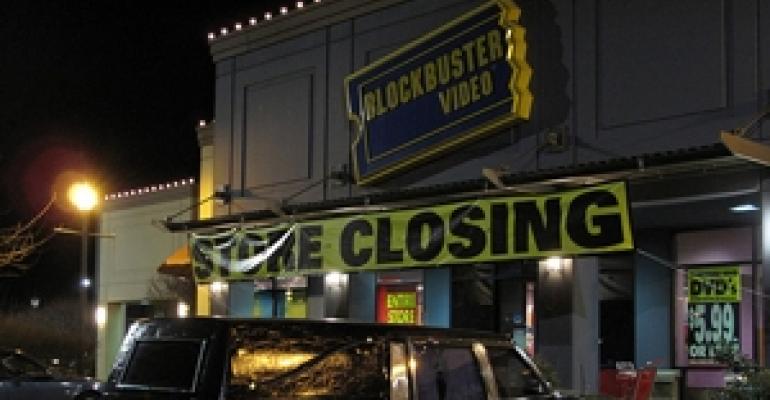
DISN Network Corp.’s decision to keep 1,500 Blockbuster stores operating is largely a reflection of the quality of the movie rental chain’s portfolio, according to several brokers and consultants.
In fact, if company execs had their way, they would have assumed even more of Blockbuster’s locations, according to company release. However, some property owners opted to take back their spaces.
The latest announcement comes a little more than three months after DISH, an Englewood, Colo.-based satellite service provider, bought Blockbuster through a bankruptcy auction for $320 million, including $228 million in cash. At the time, the chain operated 1,700 stores.
While it remains to be seen exactly what kind of in-store strategy DISH Network will pursue with the Blockbuster locations, observers think the company’s decision makes sense from a real estate perspective.
“If you put in the cost of acquiring new stores, building them and operating them, DISH bought the Blockbuster stores at a fraction of what they are worth,” says Jim Bieri, principal with Stokas Bieri Real Estate and partner with the Detroit chapter of X Team International, a retail real estate brokerage alliance. Now, “they’ve got an entire network of being able to reach out to customers on a personal basis. It’s all about coming up with the right concept and making it work.”
Blockbuster not the jewel
Indeed, given the shift to digital streaming of video content and Blockbuster’s waning hold on entertainment retailing, the decision to keep 1,500 stores in operations for the sake of the chain itself doesn’t make sense, says George Whalin, founder of Retail Management Consultants, a Carlsbad, Calif.-based retail consulting firm. Even though in recent years Blockbuster has made attempts to put some of its focus on video games and consumer electronics, the shift hasn’t had enough of an impact to turn it into a thriving brand.
The only explanation for DISH Network’s move would be a plan to transform the chain into a new concept—perhaps one focused on broader electronics offerings, Whalin notes. The new stores could also be a way to deliver top-level customer experience and service, following Apple’s model, which uses its bricks-and-mortar locations as much to inspire customer loyalty as to move inventory.
“They’ve got to find some way to make Blockbuster a viable business and they are certainly not going to do it on movie rentals,” says Whalin. “There is probably a viable business in game rentals, but it’s not a 1,500 stores viable business.”
Still, he notes, Blockbuster’s small store footprint offers DISH great flexibility, “if they can do it intelligently.”
Older Blockbusters average 6,000 square feet in size. In recent years, however, the chain pursued 4,500-square-foot spaces and sometimes even smaller stores. In addition, Blockbuster typically signed leases for between three and five years with multiple extension options, according to the company’s annual reports.
At the moment, DISH is the fourth largest player in the satellite business in terms of market cap, at $14.2 billion, trailing behind Comcast Corp., Directv and Time Warner Cable, according to Morningstar. Even if its gamble on Blockbuster stores increases subscriptions by just 10 percent, it will still be a worthwhile play for the company, given that it won’t have to invest much money in new real estate, according to Bieri.
Executives with DISH did not return calls seeking comment.
Good dirt
According to one broker and two consultants, what makes Blockbuster stores particularly valuable compared to other movie rental chains is that over the years, the company had developed a finely-honed and brilliant real estate strategy.
Blockbuster’s site selection strategy during those years involved going after end cap or freestanding buildings in high-traffic areas, with good signage and plenty of parking. And if Blockbuster signed a lease at a multi-tenant shopping center, the chain tended to lease the most attractive space within the property, says Thomas H. Maddux, principal in the Baltimore, Md. office of commercial real estate services firm KLNB Retail. (Starting in the early 1990s, Maddux spent about 15 years doing site selection for the chain as a tenant representative.)
The high quality of Blockbuster’s real estate might be the reason some of its landlords opted to terminate their leases rather than keep Blockbuster, Maddux adds. They likely feel confident about being able to find another tenant to take the space, at higher rents.
Even in Southern California, which has been among the retail markets hardest hit by the current downturn, the kinds of spaces that Blockbuster leases are hard to come by, says Whalin.
“When they first declared they were going into bankruptcy, I thought that was probably the best asset they had: their real estate,” he adds. “I think some of their stores have been around a while and are probably way below market.”

